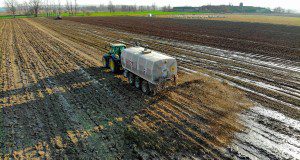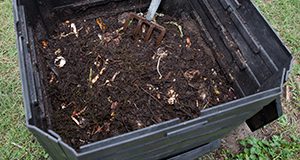Good Agricultural Practices (GAPs) and Good Handling Practices (GHPs) encompass the general procedures growers, packers, and processors of fresh fruits and vegetables should follow to ensure the safety of their product. GAPs usually deal with pre-harvest practices (i.e., in the field), while GHPs tend to cover post-harvest practices, including packing and shipping. This 5-page entry in the Food Safety on the Farm series focuses on Good Agricultural Practices, including pathogen reduction and handling and application, to control potential hazards when working with manure and biosolids. This major revision was written by Jaysankar De, Christopher R. Pabst, Jessica Lepper, Renée M. Goodrich-Schneider, and Keith R. Schneider and published by the UF/IFAS Food Science and Human Nutrition Department.
http://edis.ifas.ufl.edu/fs150
Tag: manure
Herbicide Residues in Manure, Compost, or Hay
When purchasing compost, it is important to understand that some manure-based products can contain herbicide residues that can affect the growth of certain plants. Manure from animals that have been fed forage treated with aminopyralid or other closely related herbicides, such as clopyralid or picloram, can be contaminated with these herbicides, which severely restrict the growth of legume and solanaceous crops and other broadleaf plants. This 3-page fact sheet discusses aminopyralid, compost, questions to ask when purchasing bulk compost or mulch, conducting a bioassay, aminopyralid injury symptoms, and steps to consider if contaminated manure or compost has been added to a garden or field site. Written by Jason Ferrell, Peter Dittmar, and Brent Sellers, and published by the UF Agronomy Department, May 2017.
http://edis.ifas.ufl.edu/ag416

